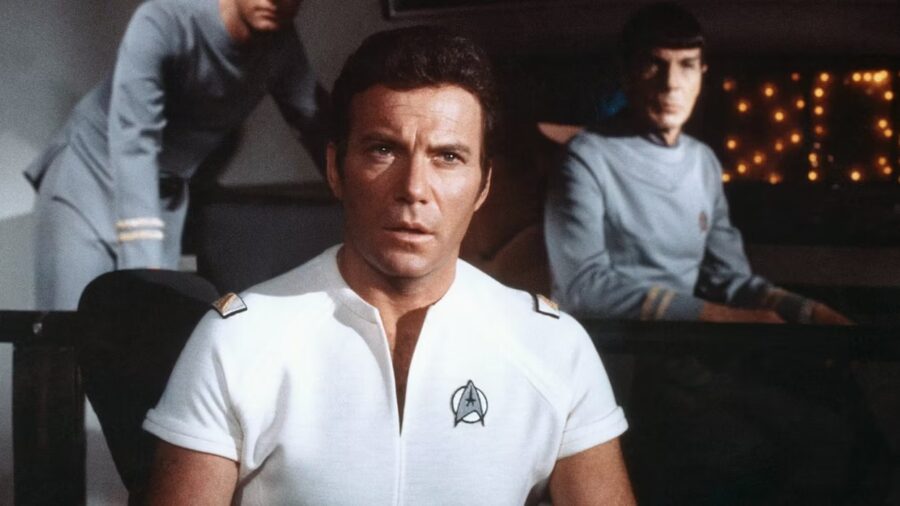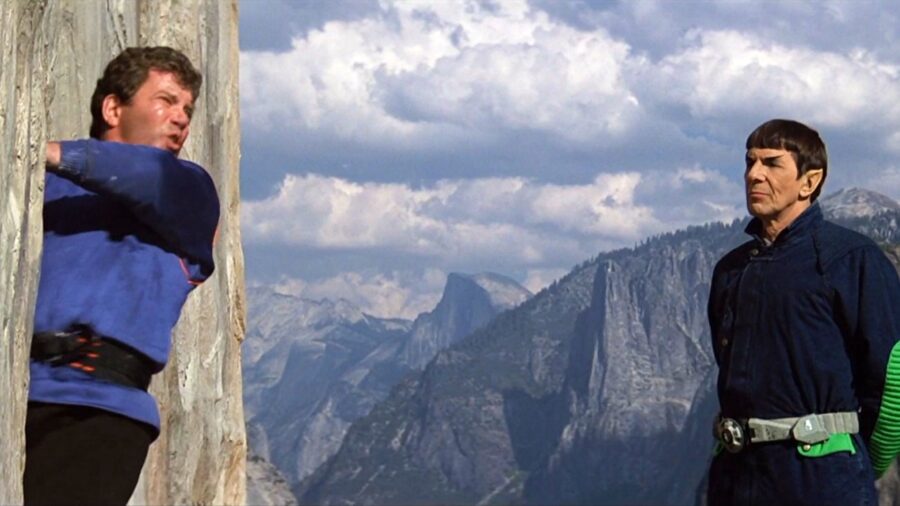Star Trek Had A Movie Called The God Thing Planned Before 1979’s The Motion Picture
Star Trek: The God Thing would have been the franchise's first planned movie, set with a much darker and more controversial tone than The Motion Picture.
This article is more than 2 years old

Fans of Star Trek all know that the first film in the prolific franchise was the 1979 movie Star Trek: The Motion Picture. However, there were multiple very different scripts that Paramount considered over the years, including a script not written by series creator Gene Roddenberry called Star Trek: Planet of the Titans. However, the more interesting of the scripts that never saw the light of day was Roddenberry’s own Star Trek: The God Thing.
There are several key differences between this movie and the first film we originally got, including the fact that Star Trek: The God Thing is downright dark at times. The crew is mostly promoted after their first five-year mission and hates it, with many of them longing for their glory days. Dr. McCoy gives up on treating humans and starts only treating animals, and Scotty becomes a full-blown alcoholic.
The more fascinating thing about this script, though, is that it embraced Gene Roddenberry’s atheistic beliefs in a way that made others very uncomfortable. As the name implies, Star Trek: The God Thing takes a critical view of God, questioning whether he might have been an alien visitor to planet Earth rather than a divine being. The script even had a moment where Vulcan mentors ask Spock why humanity has so many gods and why they all seem so insecure as to require such frequent worship.
As you might expect, Paramount was less than thrilled to receive the script for Star Trek: The God Thing. It was quickly rejected, and Roddenberry felt like it was due to that aforementioned scene on Vulcan. He believed that a single throwaway line saying that God was insecure would be enough reason for the rejection.
And he might very well have been right. The Paramount CEO at the time and Chairman of the Board was Barry Diller, a man who didn’t like sci-fi and, more importantly, in this case, a man who was a very devout Catholic. Most people assume he was deeply offended by Star Trek: The God Thing and rejected it due to Roddenberry’s representation of religion.
Then again, Diller and Roddenberry had never really gotten along, so this rejection may have been motivated by personal vendetta rather than simple religious concerns. And, as tempting as it is to see Gene Roddenberry as the victim and Paramount as a soulless studio with no creative vision, it’s possible that Star Trek: The God Thing could have destroyed the entire franchise if turned into a film.
In fact, this was the opinion of John Povill, the man who later produced Star Trek: The Motion Picture. He worried about the heavy influence of Christianity and politics in the country at the time and what they would do if the Star Trek franchise set its scanners on uncovering the secrets of God Almighty.
Gene Roddenberry once promised to adapt the rejected script for Star Trek: The God Thing into a novel, but that never happened. Later, prolific Trek novel writer Michael Jan Friedman tried to adapt it after Roddenberry passed away, but he discovered it was, frankly, quite bad and passed on the project. Despite the lack of a novel, though, the spirit of the original script lived on in some unexpected ways.

The most obvious way that Star Trek: The God Thing lived on was through many of its ideas and themes present in Star Trek V: The Final Frontier. In fact, this movie angered Gene Roddenberry because he once told William Shatner everything he wanted to do in The God Thing. When the Shatner-directed The Final Frontier came out, an angry Roddenberry felt like his ideas were stolen and declared the entire movie apocryphal, doing his best to strike it from the Trek canon.
While The Final Frontier is considered by many to be the worst bit of franchise content, the themes of Star Trek: The God Thing also live on in the best franchise entry of them all. In Star Trek: Deep Space Nine, we follow the adventures of Commander (later Captain) Benjamin Sisko, a man who gains the attention of the Prophets, alien beings worshiped by the Bajorans as gods. Seeing Captain Sisko balance the responsibilities of being both a Starfleet captain and space Jesus to beings who may be alien shows that Roddenberry’s ideas had major legs even if his script did not.










